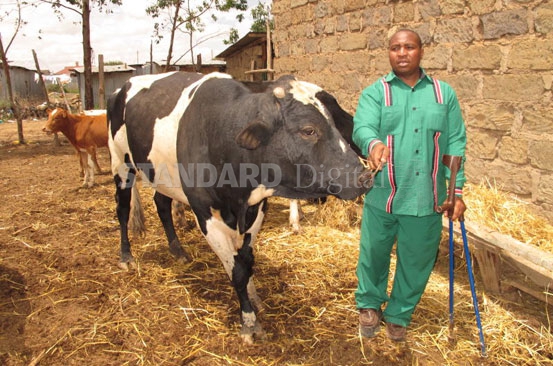×
The Standard e-Paper
Kenya’s Boldest Voice

If he is not at his clinic treating patients, he is most probably in his farm tending to his animals and crops. That is how Dr David ole Sankok's life is structured.
During the day he is at his Loita Lab Medical Clinic, in Narok town and in the shamba in the evening.